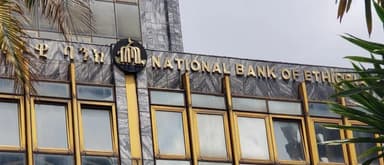Massive Capital Injection for CBE Amid Exchange Rate Shocks
11 months ago

In response to the potential fallout from recent exchange rate reforms on the liabilities of the Commercial Bank of Ethiopia (CBE), the government has decided to inject nearly 900 billion birr into the state-owned bank.
An IMF document released this week highlights this move: “A substantial capital injection of 900 billion birr has bolstered the bank’s financial position, addressing legacy issues related to SOEs. Concurrent reforms are underway to transform the bank into a commercially viable entity by enhancing governance and risk management practices.”
The World Bank has also agreed to provide USD 700 million, which the government plans to channel towards CBE.
“The USD 700 million from the World Bank under the FSSP [Financial Sector Strengthening Project] will be used for recapitalization and continued support of the reform and restructuring of CBE. This will include a focus on governance and risk management, including CBE’s ownership policy, mandate, and business plan to ensure CBE can compete as a sound, viable, and commercially oriented bank at arm’s length from the government as the financial sector is opened,” the document states.
During a briefing with government officials and banking executives, Prime Minister Abiy Ahmed (PhD) emphasized the importance of reforming CBE for the broader economic reform efforts.
“In all negotiations with the IMF and World Bank, one of the bones of contention was CBE. CBE has provided billions in loans for government projects that could not be finalized on time. It is in a precarious position. Unless it collects the loans, CBE will close down. When we talk about Ethiopia’s ongoing economic reform, we are talking about CBE. We told the IMF and WB that unless they inject at least 700 million dollars to CBE in additional financing, we cannot accept their reform proposal. This is because we decided the reform cannot succeed unless CBE recovers. CBE is a highly important institution that needs to be cured,” said the PM.
Recently, the Council of Ministers endorsed raising CBE’s capital to help the bank absorb the risk of increasing liabilities. These foreign exchange denominated liabilities are expected to surge significantly as the official exchange rate increased from around 56 birr to more than 80 birr per dollar following the floating of the exchange rate regime earlier this week.
An IMF report released Friday also underscores the need to strengthen CBE’s finances.
“Strengthening of CBE’s capital has addressed an important macro-financial vulnerability. CBE is the largest bank (58 percent of banking system assets) and was historically heavily exposed to non-performing SOE debt. With World Bank support, the authorities have taken decisive steps to financially strengthen CBE and address legacy issues related to its role in SOE lending, including FX exposures. A capital injection of 870 billion birr (using government securities) has enabled CBE to write off all claims on LAMC [Liability and Asset Management Corporation], fully provision claims on EEP, and bring CBE’s capital adequacy ratio up to the regulatory minimum,” the report notes.
A memorandum of economic and financial policies addressed to the IMF indicates that the government has restored CBE’s capital adequacy ratio to eight percent through a capital injection with government securities in an amount equal to CBE’s claim on LAMC.
LAMC was established in 2021 to absorb the debts of underperforming state-owned enterprises. In August that year, the Corporation absorbed nearly 400 billion birr in SOE debt. It later paid off some of that debt to CBE using proceeds from the sale of the private telecom operator’s license to Safaricom Ethiopia. However, the latest reports indicate the Corporation’s debts had increased to more than 540 billion birr as of June 2023.